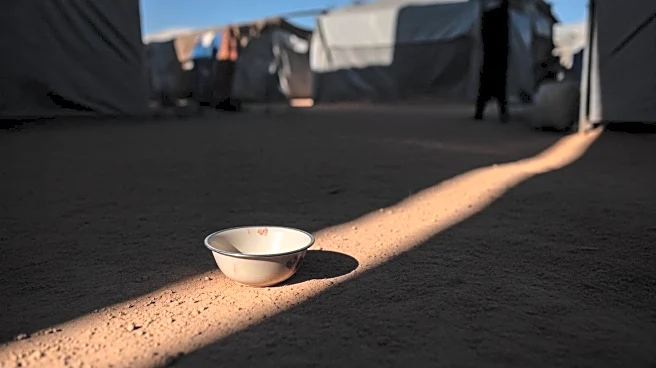What's Happening?
In the world's largest refugee camp located in Cox's Bazar, Bangladesh, Rohingya children are facing severe hunger following cuts in aid from the United States Agency for International Development (USAID).
The camp, which shelters over a million Rohingya refugees who fled persecution in Myanmar, is experiencing deteriorating conditions. Despite U.S. Secretary of State Marco Rubio's assertion that no deaths have resulted from these cuts, a study published in The Lancet predicts up to 14 million deaths over the next five years if the funding reductions persist. The situation is dire, with reports of children dying due to a lack of medical assistance, as highlighted by a mother who lost her 7-year-old daughter.
Why It's Important?
The reduction in USAID funding has significant implications for global humanitarian efforts, particularly in regions heavily reliant on international aid. The Rohingya crisis is one of the most pressing humanitarian issues, and the cuts exacerbate the already critical conditions in refugee camps. This development could lead to increased mortality rates and further destabilize the region, potentially prompting international backlash against U.S. foreign aid policies. The situation underscores the importance of sustained international support for vulnerable populations and raises ethical questions about the responsibilities of wealthier nations in addressing global humanitarian crises.
What's Next?
If the USAID cuts continue, the humanitarian crisis in Cox's Bazar and similar refugee camps could worsen, leading to increased international pressure on the U.S. to reconsider its aid policies. Human rights organizations and other countries may step up their efforts to fill the funding gap, but the scale of the crisis requires substantial resources. The U.S. government may face diplomatic challenges as it balances domestic priorities with international responsibilities. Additionally, the situation could influence future U.S. foreign policy decisions and aid allocations.










